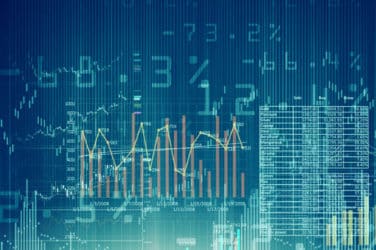The equities trading landscape has evolved, and technology is more important than ever.
What does this mean for the sales trader, the individual most squarely on the front lines of the market?
The main implication is that relationships are still critical, but rather than just bringing jocularity and an Amex Black Card to the table, the sales trader must be adept at navigating a complex market structure on behalf of the client. He or she must be able to not only explain how algorithms, smart-order routing, and venue analysis preserve alpha, but also determine the best options and customize the right path for each individual client.
“Nowadays you truly have to differentiate yourself from the 150 other people who are trying to grab the buy side’s attention,” said Ross Patten, a sales trader at Piper Jaffray and a 20-year Wall Street veteran. “There are different ways to do this — with fundamental research, with idea generation, and now with electronic trading.”
“Adding value in that capacity is about helping your client find the best venues, the best algorithms, and the best execution points on a daily basis, without being overburdened,” Patten told Markets Media. You’re just trying to point out and identify opportunistic times to execute in a complex and fragmented environment.”
Today’s sales trader might be more accurately described as an execution consultant.

Brian Schaeffer, Clearpool
“If you don’t want to be a deer in headlights, and you want to be part of the group that’s going to still exist and be relevant in 2019 and beyond, you need to be up on technology and understand exactly what’s going on,” said Brian Schaeffer, President and a Founder of Clearpool Group. “You need to utilize technology to communicate with your clients better.”
It’s not just technology that has raised the bar for sales traders; regulation also has influenced the evolution. Broadly speaking, rule makers’ push to protect the end-user investor by mandating — and requiring empirical proof of — best execution has forced the investment firms to make decisions based on cold, hard data, rather than on the strength of a personal relationship with a broker or as a quid pro quofor steak dinners at Peter Luger.
“A plethora of data is now available to the buy side to help them evaluate performance and make more informed decisions,” Schaeffer said. “This increased focus on data means sales traders need to find unique insights into clients’ trades to provide them value rather than solely relying on their established relationship.”
Schaeffer recalled that when he was a specialist on the New York Stock Exchange in the late 1990s, he could handle a vast majority of the order flow for a given stock, whether it be Disney, Pfizer or Coach. “There was an actual location where you could speak to a specialist, who would give you an idea of some of the transactions that had been taking place,” Schaeffer said.
Fast forward to 2018: the NYSE floor population is down to 200 from 3,000, and a specialist might handle just minimal percentage of a stock’s order flow. “The evolution of the sales trader is such that they have to utilize technology to replace the floor communication that’s gone away and stay relevant for clients.”
Amid today’s largely electronic markets, relationships remain as important as ever on Wall Street, Schaeffer said, and there is an increased percentage of trades that need at least a modicum of human touch as the pendulum has swung too far the other way.
“An order won’t necessarily go through somebody’s hands, but at least there’s a human on one side of the trade who actually understands the transaction and can help facilitate and shed color as to what’s taking place,” he said. “The buy side has high expectations for their execution quality and they are asking a lot more questions. It has become a lot more important for the trader to understand that.”
Said Piper Jaffray’s Patten: “Sales traders today need tools and analytics to help identify and monitor liquidity and locate less toxic environments. It’s more competitive every day, and getting smarter on innovative electronic trading tools should be a goal of every sales trader.”





